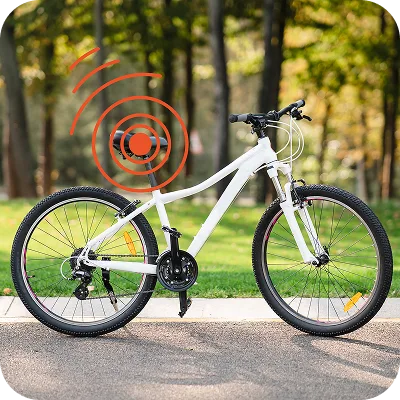Ever had that creepy feeling that someone might be tracking you? These days, GPS trackers are everywhere. Keeping tabs on lost pets, tracking deliveries, you name it. But when it comes to secretly tracking a person, things get shady real quick.
The big question is: What’s the rules on GPS when it comes to tracking someone? The answer depends on where you are in the US, but in most cases, it’s straight-up illegal. Let’s break down the rules and see what’s allowed and what could land you in trouble.
Legal Foundations of GPS Tracking in the U.S.
GPS tracking isn’t covered by one single nationwide law. Instead, most of the rules come from individual states. Even so, two major court cases have shaped how GPS use is treated across the country — one dealing with law enforcement and the other with corporate tracking. Reading these cases helps anyone stay on solid legal ground.
1. Law Enforcement and the Fourth Amendment — United States v. Jones
The Supreme Court’s 2012 decision in United States v. Jones changed how police can use GPS devices.
In that case, the Court ruled that placing a tracker on a person’s car and monitoring where it goes counts as a search under the Fourth Amendment.
That means police officers usually need a valid search warrant before installing a GPS device on someone’s vehicle. If they skip that step, any evidence collected from the tracker could be thrown out in court. The ruling reinforced a key point: people have a constitutional right to privacy in their movements, and technology doesn’t erase that.
2. Company Vehicles and Employee Consent — Elgin v. St. Louis Coca-Cola Bottling Co.
For businesses, the main question is different: can an employer track vehicles that belong to the company?
The Elgin v. St. Louis Coca-Cola Bottling Co. case answered that — generally, yes, as long as it’s done transparently.
When a company owns the vehicle and clearly informs employees that GPS tracking is in place — usually for safety, logistics, or theft prevention — the practice is considered lawful. The key is consent: employees must know about it and agree to it in writing.
Even then, rules can vary by state. Some states require specific disclosures about how data is used or stored, so companies need to review their policies carefully before rolling out any tracking system.Understanding the Legal Foundations of GPS Tracking in the U.S.
GPS tracking isn’t covered by one single nationwide law. Instead, most of the rules come from individual states. Even so, two major court cases have shaped how GPS use is treated across the country — one dealing with law enforcement and the other with corporate tracking. Knowing these cases helps anyone working with GPS technology stay on solid legal ground. Read more about gps tracker motorcycle
When is GPS Tracking Illegal?
Throwing a GPS tracker on someone’s car without permission is usually a bad idea, but it’s not the same everywhere. In general, if you don’t own the vehicle, tracking it is illegal. Stalking laws also come into play, making secret tracking a serious crime in many states.
It’s a whole different game if law enforcement is involved. Cops can use GPS tracking, but they usually need a warrant. If they skip that step, any evidence they gather could be tossed out in court.
Different States, Different Rules
Laws on GPS tracking vary across the states. So, let’s take a very quick look at how some states handle the illegal way of tracking someone:
- California: Super strict. It’s illegal to track someone’s car without consent unless you’re law enforcement with a warrant. Stalking charges can also come into play.
- Texas: Also tough on illegal tracking. You can’t install a tracker on someone else’s car unless they give you the green light.
- New York: GPS tracking is permitted, but employers can’t track workers without approval. Always inform employees about tracking.
- Florida: They don’t play around either. Placing a tracker on someone’s car without permission is a crime, and penalties can be harsh.
- Illinois: One of the stricter states. GPS tracking is mostly illegal unless you own the car or have the driver’s permission.
- Virginia: They take it seriously, too. Tracking someone without their knowledge can lead to legal trouble.
- Washington: State law allows employers to track company-owned devices without consent. For personal devices, consent is required. Always inform workers about tracking.
States Without GPS Tracking Laws
Some states don’t have specific laws on GPS tracking. That doesn’t mean you can track people freely. General privacy and anti-stalking laws still exist. Here are the states that don’t have specific GPS tracking laws:
- Georgia
- Mississippi
- Missouri
- Montana
- Nebraska
- Ohio
- West Virginia
Even in these states, using GPS tracking in a way that invades someone’s privacy or is linked to harassment can still get you into trouble.
Bottom Line
Tracking a person using the GPS function without their consent is very dangerous. In most states, it is illegal unless you have permission to do so. Before you think of tracking someone, make sure you know the law. Otherwise, you may find yourself in court detailing your explanation of why you thought it was a good idea.
























